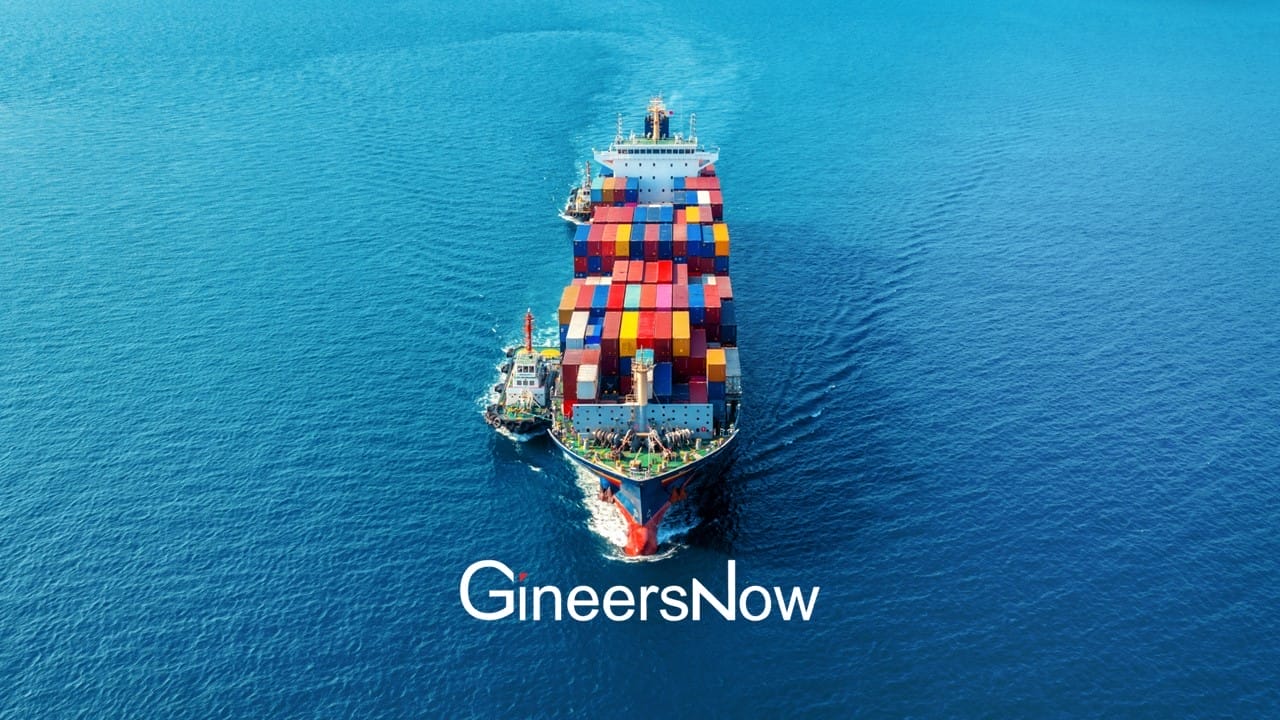As the world grapples with global supply chain challenges and an ever-increasing demand for sustainable practices, the marine transportation sector emerges as a vital player in shaping our economic landscape. But while these issues may dominate headlines, another story is unfolding beneath the surface: the impressive salaries that define careers in this dynamic industry. In 2024, the highest marine transportation salaries reflect the critical nature of these roles and the specialized skills and expertise required to navigate complex waters—both literal and figurative.
From seasoned captains steering colossal vessels across vast oceans to innovative logistics coordinators optimizing shipping routes, professionals in marine transportation are enjoying lucrative compensation packages that often exceed expectations. As we dive into this year’s rankings of top earners in the field, we will uncover who is earning what and what drives these figures upwards—from technological advancements and regulatory changes to shifts in consumer demand for greener shipping alternatives. Join us on this voyage through 2024’s highest marine transportation salaries and discover how navigating today’s maritime challenges can lead to career fulfillment and financial prosperity.
Marine Transportation Salaries and Careers Overview
In the ever-evolving landscape of marine transportation, career opportunities are as vast as the ocean itself. Professionals can choose from various roles, including ship captains, marine engineers, and logistics coordinators, offering distinct pathways and financial rewards. According to recent data, top-tier positions such as vessel operators or maritime project managers can command salaries exceeding six figures, reflecting the expertise required and the high stakes in ensuring safe and efficient operations in international waters.
Beyond mere compensation, individuals entering this field often encounter unique challenges that enhance their professional experiences. The increasing emphasis on sustainability and green shipping practices opens avenues for innovators eager to design eco-friendly vessels or implement cutting-edge logistics solutions. Furthermore, technological advancements—such as automation and AI integration—are reshaping job descriptions and creating demand for tech-savvy recruits who can bridge traditional marine operations with modern business practices. In this dynamic sector where adventure meets engineering prowess, aspiring professionals will find lucrative salaries and fulfilling careers, paving the way for a sustainable future in global trade.

Top Paying Positions in Marine Transportation: Key roles with highest salaries
In marine transportation, various key roles command impressive salaries due to the specialized skills and expertise required. Here are some of the top-paying positions in marine transportation, highlighting their respective marine transportation salaries:
1. Ship Captain: As leaders of maritime vessels, ship captains hold one of the highest-paying positions in marine transportation. Their responsibilities include navigating and operating ships safely while managing crew members. Marine transportation salaries for experienced ship captains can exceed $100,000 annually.
2. Marine Engineer: Marine engineers design, build, and maintain ships and other marine structures. Their technical expertise is crucial for ensuring that vessels operate efficiently and safely. Marine engineers’ salaries typically range from $80,000 to over $120,000 annually, depending on experience and specialization.
3. Port Manager: Responsible for overseeing port operations, logistics, and administration, port managers play a vital role in facilitating smooth maritime trade. The average salary for a port manager is around $90,000 to $130,000 annually.
4. Naval Architect: Naval architects focus on designing ships and other floating structures to ensure they are seaworthy and efficient. With the advanced engineering skills required in this role, salaries can range from $70,000 to over $110,000 annually.
5. Chief Mate/First Officer: This position supports the ship captain and oversees deck operations aboard a vessel. Depending on experience and the size of the vessel, chief mates earn between $70,000 and $100,000 annually.
6. Marine Operations Manager: These professionals manage operations within shipping companies or ports to optimize performance and safety standards. Their salaries typically range from $80,000 to over $120,000 per year.
7. Logistics Coordinator/Supply Chain Manager: These roles coordinate goods transport via sea routes and require strategic planning skills to ensure timely delivery while minimizing costs. Salaries vary widely but often fall between $60,000 and $100,000 annually.
Overall, careers in marine transportation offer lucrative compensation, reflecting the critical nature of these roles within global trade and commerce. Understanding marine transportation salaries is essential for those considering a career in this dynamic industry.
Factors Influencing Salary Levels: Experience, education, and certifications
When examining the factors influencing salary levels in various industries, particularly in marine transportation, three key elements stand out: experience, education, and certifications.
1. Experience: Years of experience significantly impact salary levels in the marine transportation field. Professionals with extensive hands-on experience often command higher wages due to their practical knowledge and skills acquired over time. Employers value seasoned individuals who can navigate challenges and contribute positively to operations.
2. Education: Educational qualifications are crucial in determining marine transportation salaries. Individuals with degrees related to maritime studies, logistics, or business management are typically positioned for higher-paying roles. Advanced degrees or specialized training can enhance job prospects and increase earning potential.
3. Certifications: Industry-specific certifications also influence salary levels within marine transportation. The STCW (Standards of Training, Certification, and Watchkeeping) certifies that an individual meets international standards required for specific maritime roles. Holding relevant certifications boosts credibility and can lead to better job opportunities and higher salaries.
In conclusion, when analyzing marine transportation salaries, it is clear that experience, education, and certifications are vital components that dictate earning potential in this dynamic industry.
Geographic Salary Variations: How location affects earnings
The landscape of marine transportation salaries is heavily influenced by geographic location, creating a compelling narrative of earnings that can vary significantly across different regions. Marine transportation salaries in high-demand ports such as New York City or Los Angeles tend to be at the upper end of the spectrum due to increased competition for skilled labor and the higher cost of living. Conversely, in areas with less maritime activity, such as rural inland locations, professionals may earn considerably less despite similar job titles.
Interestingly, globalization has reshaped this sector; regions close to major shipping routes or emerging markets are witnessing an uptick in salary offers as companies strive to attract top talent amid growing demand. For instance, professionals working in Southeast Asia—a hub for international trade—are finding that their expertise yields lucrative compensation packages reflective of local economic conditions and worldwide industry trends. This dynamic interplay between location and salary showcases how critical it is for job seekers in marine transportation to consider geographical implications when evaluating potential career opportunities.
Industry Demand and Job Growth: Trends impacting marine transportation jobs
The marine transportation industry has seen significant changes over the past few years, resulting in varying job demands. With globalization continuing to drive trade and commerce, the need for efficient and reliable marine transportation services is more critical than ever. This increasing demand directly influences marine transportation salaries, making it a competitive field for job seekers.
Several trends are shaping the future of marine transportation jobs. First, technological advancements have led to more sophisticated shipping methods, requiring a workforce well-versed in modern navigational tools and automation systems. As companies invest in these technologies, they often offer higher marine transportation salaries to attract skilled professionals who can manage these new systems.
Additionally, environmental regulations are becoming stricter, pushing companies to adopt greener practices. This shift impacts operational procedures and creates new roles focused on sustainability and compliance. Such specialized positions tend to come with enhanced marine transportation salaries due to their importance in meeting regulatory standards.
Another factor contributing to job growth in this sector is the aging workforce. Many experienced professionals are nearing retirement, creating a gap that younger workers can fill. Companies may increase marine transportation salaries as an incentive to attract fresh talent into the industry, recognizing that a skilled workforce is essential for continued success.
In summary, technological advancements, regulatory changes, and workforce demographics influence industry demand and job growth in marine transportation. These factors collectively impact marine transportation salaries, offering both challenges and opportunities for those pursuing careers in this dynamic field.
Skills That Boost Earnings Potential: Essential skills for higher salaries
Skills That Boost Earnings Potential: Essential Skills for Higher Salaries
In the competitive field of marine transportation, possessing specific skills can significantly enhance your earnings potential. Marine transportation salaries often vary based on experience, education, and skill sets. Here are some essential skills that can lead to higher salaries in this industry:
1. Navigation and Seamanship: Proficiency in navigation techniques and seamanship is crucial for any maritime professional. Mastery of these skills can increase your value to employers and lead to promotions.
2. Technical Knowledge: Understanding the technical aspects of marine vessels, including engine systems and electronic navigation tools, is vital. Technical expertise is often rewarded with higher pay.
3. Safety Management: Familiarity with safety protocols and regulations is essential in marine transportation. Certification in safety management can make you a more attractive candidate for higher-paying positions.
4. Leadership and Management Skills: Strong leadership capabilities are key for those seeking supervisory roles. Effective management can lead to better operational efficiency and increased salaries.
5. Communication Skills: Clear communication is critical in the maritime industry, whether working on a crew or coordinating with port authorities. Strong interpersonal skills can positively impact your career trajectory.
6. Problem-Solving Abilities: The ability to think critically and solve problems quickly is invaluable at sea, where situations can change rapidly. Employers often reward those who demonstrate exceptional problem-solving skills.
7. Regulatory Knowledge: Staying up-to-date on local and international maritime laws improves compliance and operational success, making you an asset that commands higher marine transportation salaries.
By developing these essential skills, individuals within the marine transportation sector can greatly enhance their earning potential while contributing effectively to their organizations.
Future Salary Projections: What to expect in upcoming years
As we look toward the future, marine transportation salaries are expected to experience dynamic shifts influenced by technological advancements, increased demand for sustainable shipping practices, and a growing global economy. With the rise of automation and digital navigation systems, professionals in the maritime sector will need to adapt their skill sets to remain competitive, potentially leading to higher compensation for those who embrace these changes. For example, autonomous vessel operation or data analytics expertise could see job seekers commanding premium salaries as organizations seek efficient solutions amidst rising operational costs.
Moreover, as nations ramp up efforts to decarbonize their industries, marine transportation salaries may reflect new roles dedicated to environmental compliance and innovation. Positions focused on green technologies—such as hybrid propulsion systems or renewable energy integration—will likely become highly sought after. This creates an opportunity for increased pay and attracting fresh talent committed to sustainable practices within the industry. Ultimately, those entering the marine transportation workforce can expect a landscape where flexibility and specialization yield rewarding financial prospects that align with broader economic trends and environmental imperatives.
Conclusion: 2024 Highest Marine Transportation Salaries
In conclusion, the analysis of the 2024 highest marine transportation salaries reveals a significant increase in compensation for professionals in this field. As the industry grows and evolves, stakeholders must stay informed about these trends. The competitive nature of marine transportation salaries indicates a demand for skilled workers, making it an attractive career choice for those interested in maritime careers. Understanding these salary dynamics will aid job seekers and employers in navigating the maritime labor market effectively.












